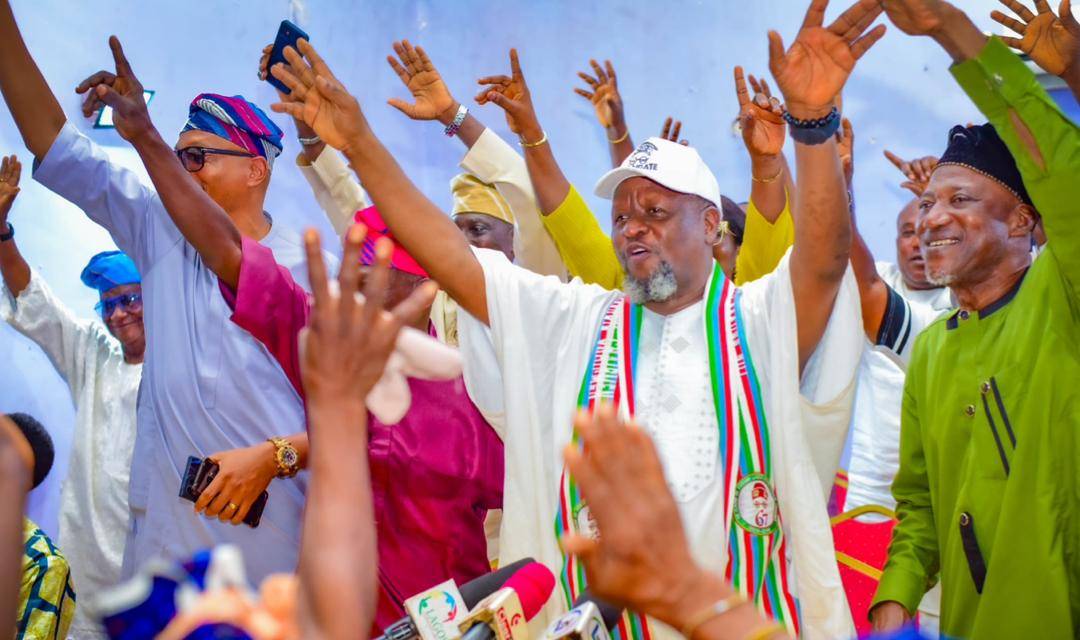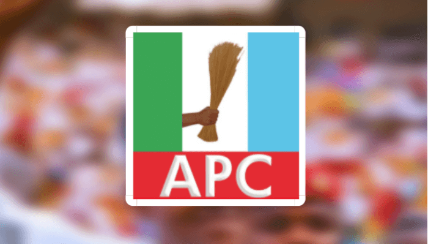By Waziri Adio
The important issue of local governance bubbled to a prominent position on Nigeria’s policy agenda lately, courtesy of the case instituted by the Federal Government against the 36 states at the Supreme Court and a surge in public commentaries on local governments’ autonomy, administration and elections. Irrespective of how the Supreme Court decides, Nigeria is overdue for another and a more thoughtful reform of governance at the local level. The reform, to be effective, must be grounded in proper diagnosis. Hence, the need to refocus the ongoing debate on this important issue.
There is a consensus among policy makers and the commentariat that local governance in Nigeria is miserably broken. There is also a general agreement that this should be the most important level of government because, being the closest to the citizens, it is the level where Nigerians should feel the essence and the presence of government the most. However, there are disparate views about why this most important level of government is, sadly, the least effective. Without a proper understanding of what ails local governance in the country, we are unlikely to evolve appropriate and effective prescriptions. This will mean that our attempts to deliver development to most of our people will continue to be constrained and compromised.
Since 1976, when we undertook a groundbreaking reform under the military, we have tried, unsuccessfully, to reposition local administration in the country. We have set up several committees, which have issued several reports, some of which have been implemented without significantly moving the needle. Over time, our definitions of the problem with local governance have ranged from lack of uniformity to inadequate resourcing/capacity, inappropriate status, limited representation, scant transparency and constrained autonomy.
Based on these definitions, we have undertaken a slew of initiatives, including the following: the introduction of a uniform structure for all local government areas in the country; the removal of LGAs from the control of traditional rulers; the provision for elected chairpersons and councillors across the country; the introduction of professional staff cadres and administrative rules and controls; the elevation of LGAs into a supposedly distinct tier of government, the third tier of the federation; the allocation of a share of federation revenues to the LGAs; the listing of all the LGAs and their capitals in the constitution; and, about two decades ago, the public disclosure of federation allocations to all the LGAs alongside the other two tiers of government.
Some of the definitions of the problem with local governance—and the interventions that followed—are valid. But some are clearly misguided, some sidestep the real issues, and some are not grounded in deep understanding of the problem at hand or side. What can be deciphered from the current court case and ongoing debate is that we think the LGAs are underperforming simply because they have little or no autonomy. Without a doubt, the overbearing presence of the states is a major issue. The flawed manner in which elections are organised (when they are organised at all) by states for the LGAs is also a key problem. But merely expanding administrative cum fiscal autonomy for the LGAs and organising regular and cleaner elections for them will barely make a dent. There are more fundamental issues with local governance in Nigeria.
A quick detour into the rationale for local governance should help in unpacking where some of the real problems lie and how we might devise more impactful interventions. Local governance is designed to engender better service delivery, greater inclusion and swifter responsiveness from the government to the populace. Local governance is an extension of the concept of decentralisation. The basic logic of decentralisation is that the unit of government closest to the issues and the people should be the most responsive to their needs and priorities and should be one best positioned to fashion out the most appropriate solutions at that level. But this promise of effective and efficient governance is hinged on certain prerequisites.
In “Local Governments that Perform Well—Four Explanations,” Merilee Grindle, the Harvard scholar, captured one of the pre-requisites that we rarely talk about this way: “when government is closer to people, it is easier for citizens to know what is happening, to have an input into decision-making and management, and to hold officials accountable for their actions.”
So, if we think that merely devolving responsibilities and resources down will automatically deliver on the good governance promised by decentralisation/local governance, then we miss the trick. Local governance is desirable, but it must be hinged on a robust mechanism that ensures the effective participation of the local people in decision-making and the presence of adequate avenues for and enough capacity of the local people to hold the local officials to account. Accountability alongside capacity for getting things done is a critical success factor for good governance at all levels. But both hardly exist in the system of local governance that we operate.
Another rarely discussed prerequisite, which is an extension of the above, is that local government areas, according to Professors Adele Jinadu and Y.B. Omelle in “Governance and Politics at the Local Level,” are intended to be “arenas of popular participation and grassroot mobilisation.” In fact, there is an agreement among scholars of decentralisation that local governance should serve as “schools of democracy,” some sort of informal classrooms where citizens and officials learn and imbibe the rudiments of democratic practice and culture.
From the above, it is clear why our local governance despite a series of reforms has remained largely weak and dysfunctional. As structured, local governance in Nigeria is deficient not just in governance but also in accountability and democratic quotients. In another place, I have described our version of local governance as one devoid of governance and not owned by the local people. The officials are mostly imposed, even when they emerge through elections. They rarely consult regularly with the people, and they hardly respond to the needs and priorities of their constituents.
On paper, our local government areas have horizontal accountability mechanisms. We have a set of rules on contracting, administration and recruitments, captured in a comprehensive Memoranda for Local Government Areas. Then, there are checks and balances that should be enforced by the auditors, the commissioners for local government affairs and the states’ parliaments. But what we have seen is that it is easy for the horizonal accountability mechanisms to be in cahoots, especially where the citizens lack the capacity or the interest to enforce their will on duty-bearers or they are prevented from doing so. Vertical accountability—the capacity of citizens to hold government to account during and after elections—has been sorely lacking at the local level. And where this is absent, it will be difficult for government to prioritise the needs of the local communities.
In 2007, Human Rights Watch did a study that is a classic representation of how broken local governance has become in Nigeria. Titled ‘Chop Fine—the Human Rights of Local Government Corruption and Mismanagement in Rivers State, Nigeria,’ the report is full of shocking details, ranging from outright corruption to budgetary allocations that task belief. Some of the findings of the report include: “A travel budget for the chairman that was more than twice as large as the capital budget for the health sector; an allocation for “miscellaneous expenses” to the office of the chairman that exceeded the combined education overhead and capital budgets; and a security vote to the Office of the Chairman roughly equivalent to the entire health sector budget.” If the people were involved in decision-making, it would be a stretch for them to agree that the travel budget for the chairman of Opobo-Nkoro LGA, for instance, is more important and should be higher than the capital budget for their health sector.
The degree of depravity might vary, but local governance in Rivers State was not an isolated case when the report was released. And rather than improve, governance at the local level has gotten worse because the fundamentals have not changed and are probably worse 17 years after. Today, a significant number of the local government chairpersons and councillors hardly even live in their LGAs again. Some live in the state capitals to stay close to the governors, their benefactors; while some stay in Abuja and in some instances, some even live abroad. It is common knowledge that the only function most of them dutifully perform is to share whatever is given to them of the federal allocation, and disperse.
Around 2004, the Ministry of Finance started publishing the allocations to all the LGAs in newspapers. This later shifted to the website of the Office of the Accountant General of the Federation. This initiative was designed to empower the citizens with information to hold their local officials to account. However, those behind the initiative assume that a critical mass of the citizens in all the LGAs can access the information about federation allocations. In addition, they assume that the local citizens and the existing local groups have interest in such data and that they have the capacity to use it to effectively demand accountability.
Quite some assumptions to make. These assumptions might have ignored the distance between local citizens and the resources pouring into their LGAs either in the form of 20.60% of federation’s statutory revenue or 35% of value added tax (VAT). The sad reality is that hardly do citizens at the local level see these allocations as theirs. The money rarely issues directly from their sweats. It is largely money from Abuja that the LGA and state officials can expend as they wish, including as patronage for those who ask questions.
What is playing out at the local level across the country is a reflection of the dysfunctional nature of our politics and governance. There is such a problematic relationship between state and society that most Nigerians see the public domain as the place for those who are lucky to have access should use to help themselves and those close to them. Largely, most of our people see public office as prebends (Richard Joseph) and most people think the spoils from the immoral civic realm should be used for the benefit of the moral primordial realm (Peter Ekeh)—in other words, it is not bad, and it is in fact expected, that you take public resources to help yourself, your family, and those of your faith and ethnicity. We also have a principal-agent problem, with the agents (elected and appointed officials) taking care of themselves ahead of and becoming the lords of the principals (the people).
So, it is a national problem. At the local level, the micro is merely mimicking the macro. However, these dysfunctions are tragically most pronounced at the local level because this is where the checks and balances and the accountability mechanisms are the weakest. Incidentally, this is also where we need good governance the most. Legislative oversight, judicial checks, independent press, active civil society, engaged citizenship and other restraint mechanisms thin out the farther you move from the centre. They are largely absent at the local level. Power and resources without strong accountability measures would rarely produce good governance. Of course, there is also the issue of wafer-thin capacity for governance at the local level.
While the concerns about local government autonomy and the argument about returning Nigeria to a two-tier federation and allowing the states to decide how many administrative units they want are not misplaced, I think there are more important issues to address. Central to the quest for improving local governance in Nigeria should be how to creatively and sustainably deepen democracy, citizens’ participation and social accountability at the local level. These should be the overriding focus of not just the ongoing debate but also of the next generation of local government reforms in the country.
Culled from Thisday













